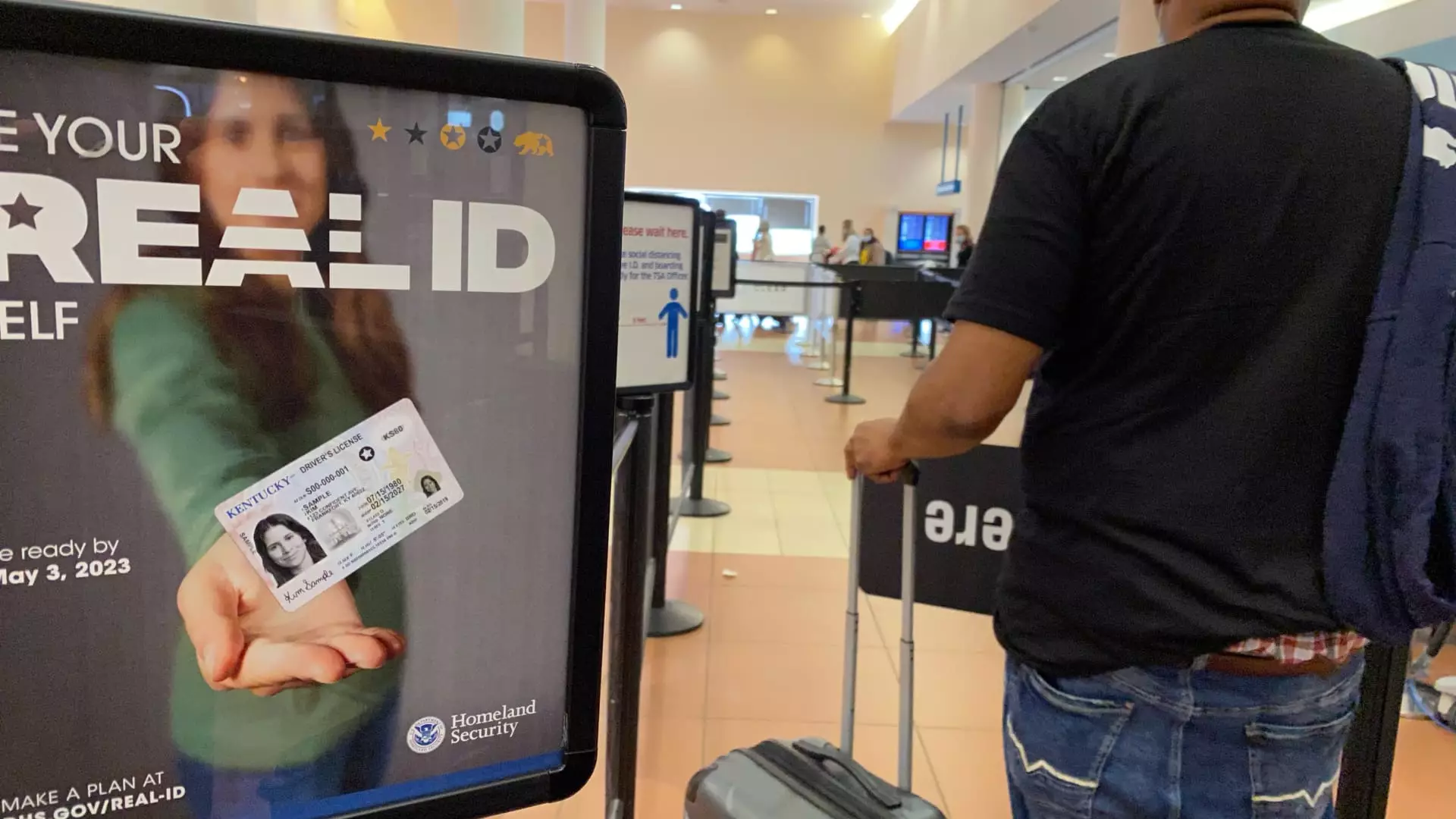As the clock ticks down to May 7, 2023, many American travelers are facing a harsh reality: the long-anticipated enforcement of the Real ID requirements at airports across the nation is finally here. For those who have been living under a rock, this means that air travelers must present a Real ID-compliant identification—like a driver’s license adorned with a gold star—or another accepted form of ID, such as a passport, to pass through TSA security checkpoints for domestic flights. The stakes are high, and the pressure is mounting, but the government’s handling of this impending change leaves much to be desired.
The Transportation Security Administration (TSA) has announced that approximately 81% of individuals approaching airport checkpoints are already in possession of compliant identification. While that number might sound promising, it is crucial to remember that this statistic varies significantly depending on state-level compliance and public awareness, and it could create chaos as the deadline looms. Why has the government waited so long to enforce this policy? The fact that the deadline has been postponed multiple times gives the impression that the authorities are ill-prepared for the transition. In a landscape already fraught with uncertainty, rising inflation, and geopolitical tensions, the last thing travelers need is an additional layer of stress.
Government Messaging: Mixed Signals and Uncertainty
The lack of clarity surrounding the Real ID requirements is troubling. Federal and state officials have called on travelers to make appointments at their local motor vehicle departments for ID updates, which in theory sounds simple enough. However, it is imperative to acknowledge the reality: these appointments are scarce, often booked weeks in advance. People are being squeezed between the need for compliance and the sluggishness of bureaucratic processes. John Essig, the TSA’s federal security director for the New York City area, pushed for urgency in securing these appointments, but his insistence alone will not alleviate the bottlenecks travelers are experiencing.
The Real ID initiative itself stems from the 9/11 attacks, during which the hijackers utilized state-issued IDs to facilitate their operations. It’s commendable that safety is prioritized in the wake of such tragedies, but it raises the question: Is the government truly focused on effective measures that prioritize public convenience along with safety? The flyers and QR codes being handed out at airports, albeit well-meaning, feel like a Band-Aid on a much larger wound that needs addressing—the slow, inefficient workings of government agencies.
Frequent Delays and Frustrations Awaiting Travelers
The TSA’s warnings have become increasingly dire as the deadline approaches. Travelers are urged to allow ample time—three hours or more—if they don’t possess Real ID or accepted alternatives. What’s alarming here is the implication that travelers could face delays, additional screenings, or even be barred from entering the security checkpoint altogether. Not only does this put an undue burden on travelers, but it also paints a troubling picture of an already fraught travel experience.
To expect individuals—who may already be juggling tight schedules, family responsibilities, or tight budgets—to adjust their plans on a whim is simply unreasonable. While the TSA claims that identity verification is essential for security, the undue stress placed on the average traveler during peak travel seasons shows a lack of consideration for the very individuals whose freedoms they claim to protect.
A Call for Compassionate Governance
It is time for a paradigm shift in how the government approaches such deeply impactful regulations. There needs to be a balance between enforcing necessary security measures and recognizing the lived experiences of everyday Americans. The combination of complexity, inconvenient timelines, and a lack of empathetic communication raises significant concerns about how our government manages such transitions.
This issue touches on a broader narrative about the necessity for governance that reflects the needs of the public rather than layering on additional challenges in the name of security. As we tread forward into this new Real ID era, it is crucial to demand a more compassionate and agile approach from our leaders, ensuring that every American has the ability to fly without having to navigate an overwhelming maze of regulations. The government must commit to being not just a security gatekeeper but a facilitator of travel, safeguarding rights without trampling the dignity of its citizens.

